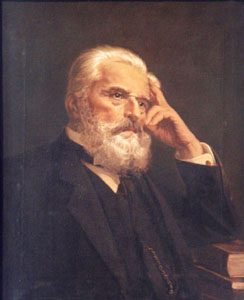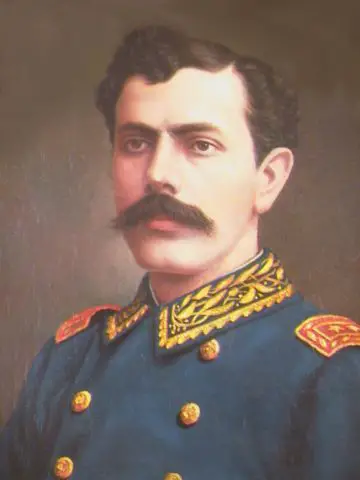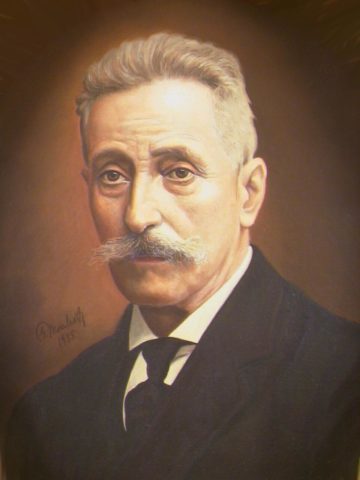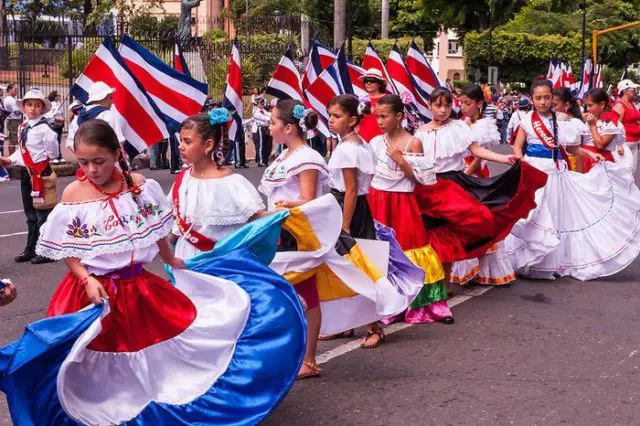| History The Conquest of our democratic life was not an isolated event. In fact, throughout Costa Rican historical process, an entire people opened their heart and raised their will to conquer their rights. In the 2nd half of the 19th Century, Costa Rica had lived under the influence of liberalism which finally, after many attempts, had managed to enter its ideals to the country. Especially during the administrations of Próspero Fernández and Bernardo Soto, who were the ones that became the flag-bearers of this movement, they took a series of measures of forceful liberal court, such as the expulsion of the Jesuits, the secularization of the cemeteries, and reforms to the educational systems. |

In 1889, the first 2 political parties recorded in our history -the “Liberal Progressive Party”- with the candidacy of Don Ascensión Esquivel, a candidate to whom we could qualify as “official”, was introduced to the political scene. In opposition to this movement, another party led by Don Rafael Yglesias Castro -a young emerging political figure at that time- was also registered. This movement was named the “Democratic Constitutional Party” and proposed Mr. José Joaquín Rodríguez, a serene and intelligent man who occupied the honorable position of President of the Supreme Court of Justice, as a candidate for the Presidency of the Republic.
On May 1st, 1889, President Soto handed over the power to Mr. Ascensión Esquivel, taking advantage of the fact that he was invested with the status of Appointed to the Presidency of the Republic. This attitude, of course, aroused a wave of dissatisfaction within the opposition to Esquivel, because he saw in the attitude of President Soto, a way to pressure the triumph of the Liberal Progressive Party candidate.

In that environment, the elections took place and gave an overwhelming victory for the “Rodriguismo” that obtained almost 90% of the votes. That fact assured the presidential election of Lic. José Joaquín Rodríguez.
However, the “Esquivelista” fraction, at least a part of it, did not accept that defeat and, on the afternoon of November 7th that same year, an unexpected event happened. A platoon of policemen took the streets of San José and they were soon joined by some other groups of civilians which, as whole, formed a large demonstration
That demonstration provoked the logical, spontaneous, and immediate reaction of the “Rodriguismo” that quickly spread over the streets of San José, in order to defend the victory obtained in the previous elections, that initially seemed like a government decision to respect the popular will. Soon they were swollen by thousands of Costa Ricans who defended the sacred right of suffrage.

Don Bernardo Soto, understanding the reality of that situation, made it clear that the government had enough power to repress the “Rodriguistas” and maintain itself by holding that power but at the cost of the blood of a huge number of Costa Ricans who were decided to make the popular will be respected, even if they had to lose their own lives.
In order to bring the country back to peace, Mr. Mauro Fernández was commissioned to write the decree through which the presidency of Dr. Carlos Duran was going to be delivered.
In this sense, Dr. Duran was able to reconcile the whole Costa Rican family. The electoral rights that were defended with ardor on November 7th, were also respected and, therefore, on May 8th, 1890, handed power to Lic. José Joaquín Rodríguez.
Commemoration
Since 1942, through the Institute for Formation and Studies in Democracy (IFED), the National Day of Democracy is established. This institute is now in charge of the promotion of democracy. It is also the driving force of the permanent celebration of this day, which is held every year in front of the facilities of the Supreme Electoral Tribunal (TSE) and includes the organization of cultural and training activities.

This year, the TSE organized a parade with typical masquerades and school bands. It will start during the morning. The route: the street next to the National Theater up to the boulevard, in front of the National Museum; then turning the 15th Street, in front of the TSE building. As part of the celebration, an Artisan Fair of Democracy was organized in the National Park, where activities for children, sports, inflatables, among others, will be enjoyed by people in general.
